A core mission statement of the Ulster Farmers’ Union (UFU) since it was established over 100 years ago is ‘the land first’, and it is a theme at the forefront of David Brown’s thinking as he starts his two-year term as president this Saturday 30 April.
He is keen to get across to consumers, and especially politicians, that agricultural land is a finite resource, and with growing urbanisation and the impact of climate change in other parts of the world, it defies logic to be telling farmers to take land out of production.
“We can’t make more land, but the Westminister government seems to have little regard for food security, and the trade deals it is pursuing point to a high level of indifference as to where food comes from. However, we have seen countries closing their borders to protect their food supplies. We must retain our capacity to produce food,” he says.
But he is not blind to the environmental pressures coming on the industry, and is clear that we need to make our farms more efficient and minimise nutrient losses.
On their farm outside Florencecourt in Co Fermanagh, the Browns keep suckler cows, with most animals taken through to slaughter. A grass enthusiast, David Brown previously chaired the Fermanagh Grassland Club, and was among those taking part in the first phase of the Focus Farm Programme.
“I had over 50 groups come to the farm. I enjoy farming, and I enjoy communicating with farmers,” he says.
While the farm is run to a high standard, Brown is not someone to talk up his own achievements, and is thoughtful in his remarks. During his tenure as president he is keen that the broader expertise of the likes of committee chairs is utilised to convey the UFU position on key sectoral issues. He also wants more women and young people involved within the UFU structure.
Approach
The first Fermanagh president since Douglas Rowe in the early 2000s, Brown has a 90-mile one-way trip to the UFU Antrim Road headquarters, but says “he accepted that” when he took on the deputy role four years ago.
He takes over from north Antrim farmer Victor Chestnutt, who during his time as president wasn’t afraid to ruffle a few feathers. So will the approach of the new president be much different? “Sometimes it is necessary to engage, sometimes it is necessary to challenge. I won’t be afraid to challenge,” responds Brown.
Badger cull still work in progress
Wildlife campaigners may have filed papers at the end of March seeking a judicial review of DAERA plans for a cull of badgers in NI, but for the time being, nothing has changed, maintains David Brown.
“A judicial review has the potential to hold it all up. But as far as we are concerned, we progress the policy until a judge might tell us otherwise,” he says.
He points out that it is not an indiscriminate cull, nor will it be done by farmers. Instead, DAERA has proposed a targeted removal in TB hotspot areas by controlled shooting using trained marksman.
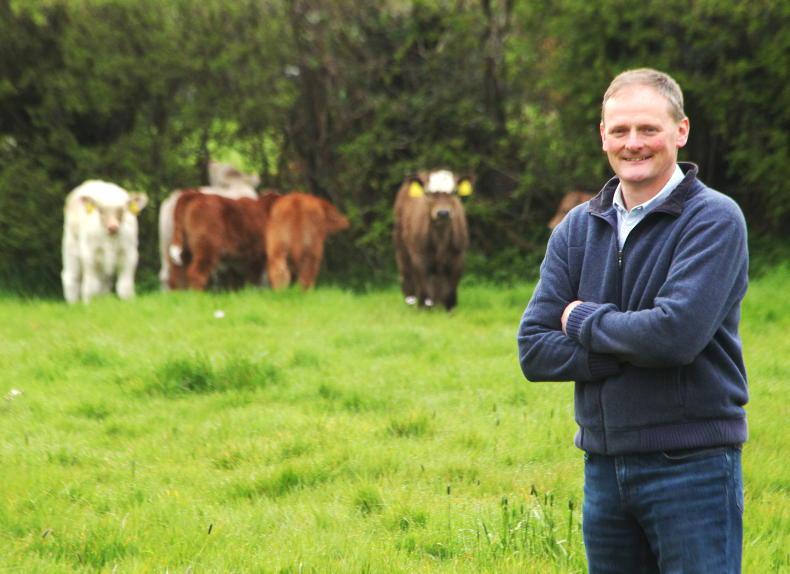
Incoming UFU president David Brown on his beef farm outside Florencecourt Co. Fermanagh. \ Houston Green
Brown accepts that culling badgers is controversial, but argues that the results from cull areas in England show that TB rates in cattle are significantly down.
Finance
Among the issues still to be resolved is finance, with the initial proposal from DAERA that the actual cost of shooting badgers falls on industry.
“Farmers need to realise that a future TB strategy is not going to come free of charge,” responds Brown.
For those against culling, he adds that of all the issues farmers approach him with at shows around the country, TB is the topic usually raised.
“The distress we see is very real, and people are at the end of their tether. There are so many hidden costs to TB,” he says.
UFU message to local politicians
Some political commentators have suggested there might be a prolonged stalemate at Stormont post the 5 May election. However, with many crucial farming issues to be progressed, that is not something David Brown wants to see.
“We want Stormont up and running after the election,” he maintains.
He accepts that disagreements around the NI protocol may make that unlikely, but rather than a total shut down, is hopeful current ministers (including Edwin Poots) might be able to remain in a caretaker capacity “and nurse things along”. If that was the case, progress could still be achieved on issues such as future agricultural policy and bovine TB, but new announcements could not be made.

Incoming UFU president David Brown with his son Neil on his beef farm outside Florencecourt Co. Fermanagh. \ Houston Green
While Minister Poots did bring forward a number of key issues ahead of the pre-election period, a new ammonia strategy did not get over the line.
Brown said: “We were disappointed an ammonia strategy was not forthcoming, because the reality is that no one can get a planning decision without this being progressed. No doubt it will be very challenging, but the next generation need to be able to invest, and find a means of staying on our farms.”
The environment around climate change
The failure of most politicians at Stormont to follow scientific advice from experts on the UK Climate Change Committee (CCC) around targets for a NI climate change bill is not something that will be quickly forgotten by farmers.
“The 82% reduction target recommended by the CCC was going to be hugely challenging – it beggars belief that we were being told it was not ambitious enough,” says David Brown.
In the end, a compromise of sorts was reached, with a separate target set for methane, but all other greenhouse gases must reach net zero by 2050.
“Farmers should not think this is all now sorted. Everyone down the supply chain is talking about carbon audits,” adds Brown.
Protection
Looking ahead, he is against plans for an independent environmental protection agency as committed to by politicians in the New Decade, New Approach deal which saw Stormont re-established back in early 2020.
That independent body would effectively replace the NI Environment Agency (NIEA), which is part of DAERA.
“There is enough oversight from within our Department [DAERA],” says Brown.
Future policy
On the key issue of future agricultural policy, while the UFU has put forward a united front to this point, he accepts
that details are still lacking in many areas, and there is the potential for more division to emerge.
But he points out that the key message from senior British politicians to the UFU is that things cannot continue as they are, and if funding is to be secured, farmers must deliver the likes of increased productivity (making better use of inputs) and environmental outcomes.
Costs are an
immediate concern
Like most farmers across NI, David Brown is hoping to get away with applying less fertiliser this year, although he is in the fortunate position of having a significant bank of silage to hold over to next winter.
“Cost inflation is a huge test for businesses at the minute, particularly on drystock farms,” he says.
He accepts that affordability of food for consumers is also an issue, so others along the supply chain will have to absorb more of the pressure. “Costs are also up for processors and retailers, but not at the scale seen by farmers,” he maintains.
Lobby effort
As well as continuing to lobby for prices to reflect costs of production, he says that the UFU will keep up the pressure to ensure that farmers are not negatively affected by the NI protocol, especially when taking in goods from Britain. “We keep out of the big politics around the protocol, but we will continue to lobby to get issues specific to NI agriculture sorted,” says Brown.
Each new UFU president selects a charity to be supported for their two-year term, and in the case of David Brown he has chosen to support Marie Curie.
Brown keen to review the review
At the union AGM on Saturday, UFU members will elect two deputy presidents to serve alongside David Brown.
A new voting system will be applied after a review team led by Brown recommended a number of changes. In the past it was a straight race between the candidates, and the two with the most votes at the AGM were elected as deputies. However, that meant if voting was split across candidates, someone with a relatively small share could be successful.
This time there are five new candidates (Mary Hunter, Sam Chesney, John McLenaghan, Ian Buchanan and Glen Cuddy) standing along with current deputy president William Irvine. There will be a number of rounds of voting, with the candidate with the lowest votes dropping out each time. Where a candidate gets over 50% in a voting round, they are elected.
As well as a new voting system, there has also been a series of hustings events around the counties, although attendance at some of these events has been low. The initial recommendation of the review team was that the candidates should introduce themselves at the annual winter roadshows rather than have a separate event.
“One of the first things I will be doing is initiating a review of the review,” insists Brown.
Read more
Badger cull targeted for autumn
No quick payout of £70m package
A core mission statement of the Ulster Farmers’ Union (UFU) since it was established over 100 years ago is ‘the land first’, and it is a theme at the forefront of David Brown’s thinking as he starts his two-year term as president this Saturday 30 April.
He is keen to get across to consumers, and especially politicians, that agricultural land is a finite resource, and with growing urbanisation and the impact of climate change in other parts of the world, it defies logic to be telling farmers to take land out of production.
“We can’t make more land, but the Westminister government seems to have little regard for food security, and the trade deals it is pursuing point to a high level of indifference as to where food comes from. However, we have seen countries closing their borders to protect their food supplies. We must retain our capacity to produce food,” he says.
But he is not blind to the environmental pressures coming on the industry, and is clear that we need to make our farms more efficient and minimise nutrient losses.
On their farm outside Florencecourt in Co Fermanagh, the Browns keep suckler cows, with most animals taken through to slaughter. A grass enthusiast, David Brown previously chaired the Fermanagh Grassland Club, and was among those taking part in the first phase of the Focus Farm Programme.
“I had over 50 groups come to the farm. I enjoy farming, and I enjoy communicating with farmers,” he says.
While the farm is run to a high standard, Brown is not someone to talk up his own achievements, and is thoughtful in his remarks. During his tenure as president he is keen that the broader expertise of the likes of committee chairs is utilised to convey the UFU position on key sectoral issues. He also wants more women and young people involved within the UFU structure.
Approach
The first Fermanagh president since Douglas Rowe in the early 2000s, Brown has a 90-mile one-way trip to the UFU Antrim Road headquarters, but says “he accepted that” when he took on the deputy role four years ago.
He takes over from north Antrim farmer Victor Chestnutt, who during his time as president wasn’t afraid to ruffle a few feathers. So will the approach of the new president be much different? “Sometimes it is necessary to engage, sometimes it is necessary to challenge. I won’t be afraid to challenge,” responds Brown.
Badger cull still work in progress
Wildlife campaigners may have filed papers at the end of March seeking a judicial review of DAERA plans for a cull of badgers in NI, but for the time being, nothing has changed, maintains David Brown.
“A judicial review has the potential to hold it all up. But as far as we are concerned, we progress the policy until a judge might tell us otherwise,” he says.
He points out that it is not an indiscriminate cull, nor will it be done by farmers. Instead, DAERA has proposed a targeted removal in TB hotspot areas by controlled shooting using trained marksman.

Incoming UFU president David Brown on his beef farm outside Florencecourt Co. Fermanagh. \ Houston Green
Brown accepts that culling badgers is controversial, but argues that the results from cull areas in England show that TB rates in cattle are significantly down.
Finance
Among the issues still to be resolved is finance, with the initial proposal from DAERA that the actual cost of shooting badgers falls on industry.
“Farmers need to realise that a future TB strategy is not going to come free of charge,” responds Brown.
For those against culling, he adds that of all the issues farmers approach him with at shows around the country, TB is the topic usually raised.
“The distress we see is very real, and people are at the end of their tether. There are so many hidden costs to TB,” he says.
UFU message to local politicians
Some political commentators have suggested there might be a prolonged stalemate at Stormont post the 5 May election. However, with many crucial farming issues to be progressed, that is not something David Brown wants to see.
“We want Stormont up and running after the election,” he maintains.
He accepts that disagreements around the NI protocol may make that unlikely, but rather than a total shut down, is hopeful current ministers (including Edwin Poots) might be able to remain in a caretaker capacity “and nurse things along”. If that was the case, progress could still be achieved on issues such as future agricultural policy and bovine TB, but new announcements could not be made.

Incoming UFU president David Brown with his son Neil on his beef farm outside Florencecourt Co. Fermanagh. \ Houston Green
While Minister Poots did bring forward a number of key issues ahead of the pre-election period, a new ammonia strategy did not get over the line.
Brown said: “We were disappointed an ammonia strategy was not forthcoming, because the reality is that no one can get a planning decision without this being progressed. No doubt it will be very challenging, but the next generation need to be able to invest, and find a means of staying on our farms.”
The environment around climate change
The failure of most politicians at Stormont to follow scientific advice from experts on the UK Climate Change Committee (CCC) around targets for a NI climate change bill is not something that will be quickly forgotten by farmers.
“The 82% reduction target recommended by the CCC was going to be hugely challenging – it beggars belief that we were being told it was not ambitious enough,” says David Brown.
In the end, a compromise of sorts was reached, with a separate target set for methane, but all other greenhouse gases must reach net zero by 2050.
“Farmers should not think this is all now sorted. Everyone down the supply chain is talking about carbon audits,” adds Brown.
Protection
Looking ahead, he is against plans for an independent environmental protection agency as committed to by politicians in the New Decade, New Approach deal which saw Stormont re-established back in early 2020.
That independent body would effectively replace the NI Environment Agency (NIEA), which is part of DAERA.
“There is enough oversight from within our Department [DAERA],” says Brown.
Future policy
On the key issue of future agricultural policy, while the UFU has put forward a united front to this point, he accepts
that details are still lacking in many areas, and there is the potential for more division to emerge.
But he points out that the key message from senior British politicians to the UFU is that things cannot continue as they are, and if funding is to be secured, farmers must deliver the likes of increased productivity (making better use of inputs) and environmental outcomes.
Costs are an
immediate concern
Like most farmers across NI, David Brown is hoping to get away with applying less fertiliser this year, although he is in the fortunate position of having a significant bank of silage to hold over to next winter.
“Cost inflation is a huge test for businesses at the minute, particularly on drystock farms,” he says.
He accepts that affordability of food for consumers is also an issue, so others along the supply chain will have to absorb more of the pressure. “Costs are also up for processors and retailers, but not at the scale seen by farmers,” he maintains.
Lobby effort
As well as continuing to lobby for prices to reflect costs of production, he says that the UFU will keep up the pressure to ensure that farmers are not negatively affected by the NI protocol, especially when taking in goods from Britain. “We keep out of the big politics around the protocol, but we will continue to lobby to get issues specific to NI agriculture sorted,” says Brown.
Each new UFU president selects a charity to be supported for their two-year term, and in the case of David Brown he has chosen to support Marie Curie.
Brown keen to review the review
At the union AGM on Saturday, UFU members will elect two deputy presidents to serve alongside David Brown.
A new voting system will be applied after a review team led by Brown recommended a number of changes. In the past it was a straight race between the candidates, and the two with the most votes at the AGM were elected as deputies. However, that meant if voting was split across candidates, someone with a relatively small share could be successful.
This time there are five new candidates (Mary Hunter, Sam Chesney, John McLenaghan, Ian Buchanan and Glen Cuddy) standing along with current deputy president William Irvine. There will be a number of rounds of voting, with the candidate with the lowest votes dropping out each time. Where a candidate gets over 50% in a voting round, they are elected.
As well as a new voting system, there has also been a series of hustings events around the counties, although attendance at some of these events has been low. The initial recommendation of the review team was that the candidates should introduce themselves at the annual winter roadshows rather than have a separate event.
“One of the first things I will be doing is initiating a review of the review,” insists Brown.
Read more
Badger cull targeted for autumn
No quick payout of £70m package







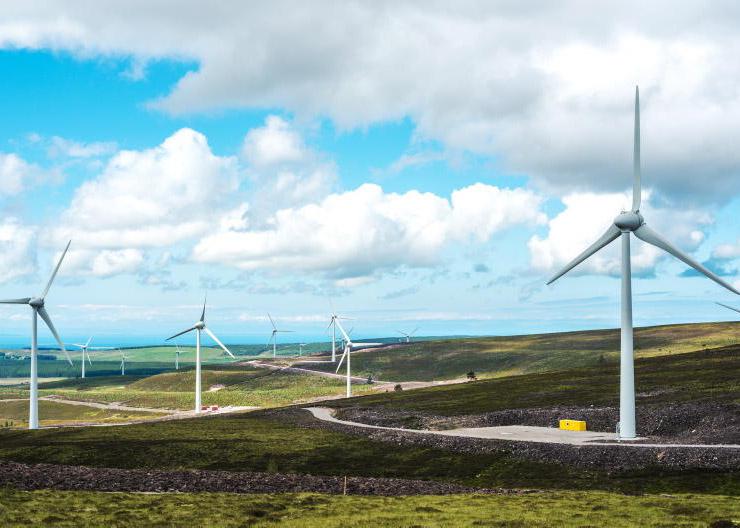

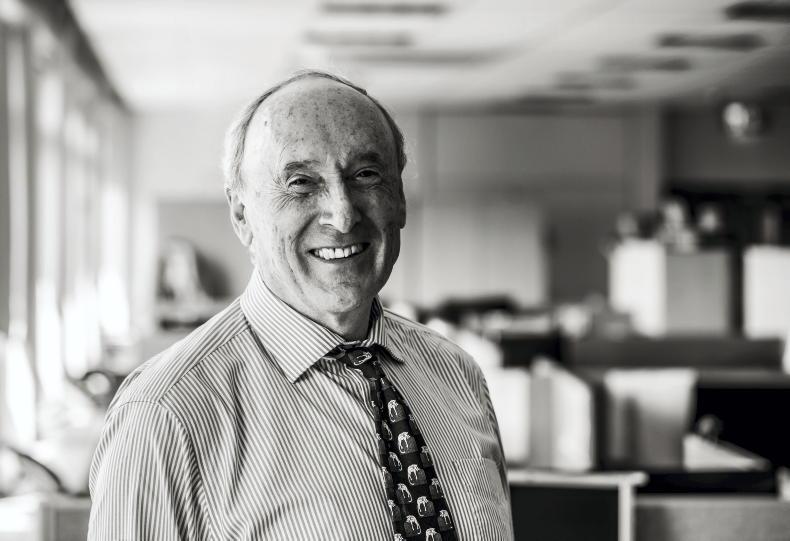
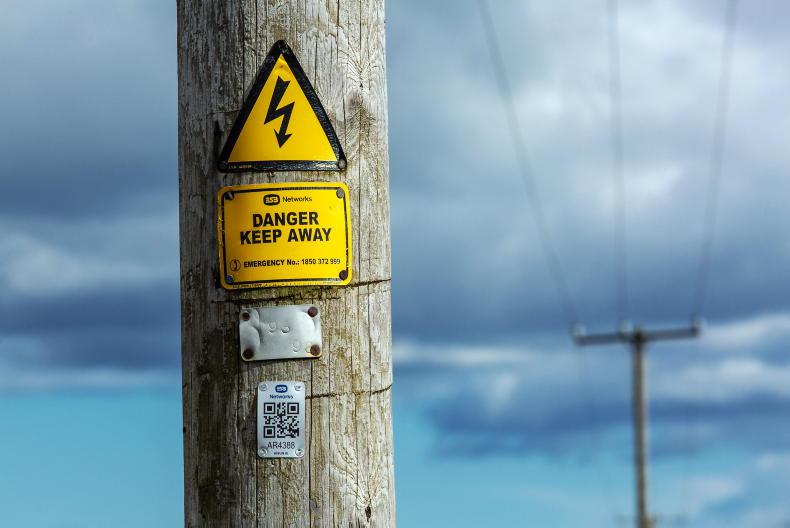
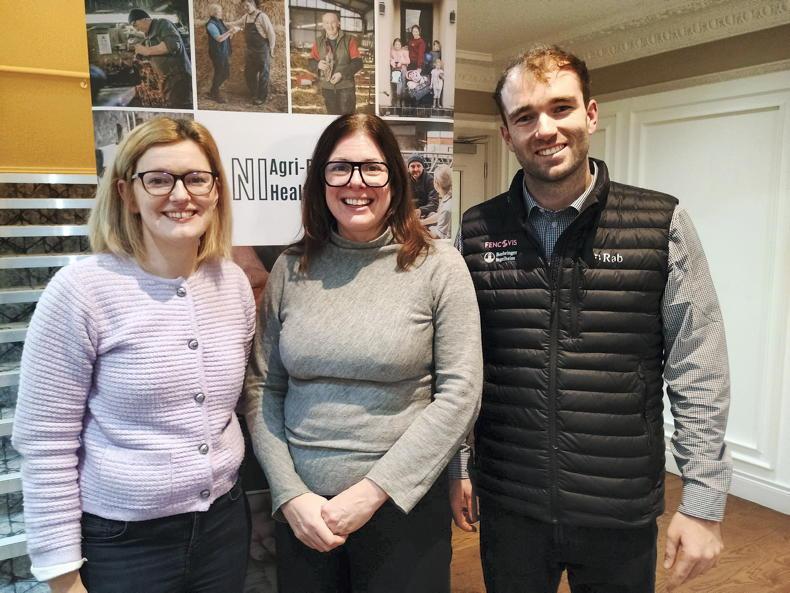
SHARING OPTIONS